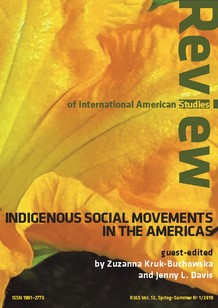Food Sovereignty Practices at the Oneida Nation of Wisconsin Tsyunhehkw^ farm: The Three Sisters, Ceremony and Community
Food Sovereignty Practices at the Oneida Nation of Wisconsin Tsyunhehkw^ farm: The Three Sisters, Ceremony and Community
Author(s): Zuzanna Kruk-BuchowskaSubject(s): Cultural history, Agriculture, Cultural Anthropology / Ethnology, Sociology of Culture
Published by: Wydawnictwo Uniwersytetu Śląskiego
Keywords: Oneida Nation of Wisconsin; Indigenous food sovereignty; cultural revival;
Summary/Abstract: The paper looks at the role of traditional foodways and related cultural practices in Oneida’s contemporary food sovereignty efforts, and the various understandings of the continuity of food and agricultural traditions in the community. The Oneida Nation of Wisconsin are located west of the city of Green Bay, in the northeastern part of the state, which in turn is in the north of the Midwest region of the U.S. The tribe’s Tsyunhehkw^’s (joon-hen-kwa) farm, whose name loosely translates into “life sustenance” in English, serves important cultural, economic and educational purposes. It grows Oneida white flint corn, which is considered sacred by the tribe and is used for ceremonial purposes, and tobacco for use in ceremonies and runs a traditional Three Sisters Garden. The Three Sisters—corn, beans and squash, are an important part of the Oneida creation story, as is the vision of Handsome Lake— a Seneca prophet from the turn of the nineteenth century, who played a significant role in the revival of traditional religion among the People of the Longhouse. They inform the work done at Tsyunhehkw^ to provide healthful food for the Oneida community.
Journal: Review of International American Studies
- Issue Year: 12/2019
- Issue No: 1
- Page Range: 111-128
- Page Count: 18
- Language: English

